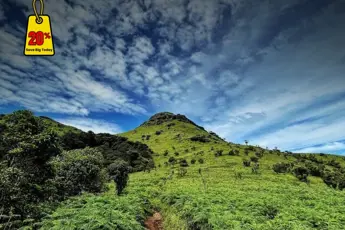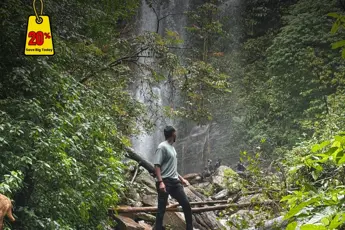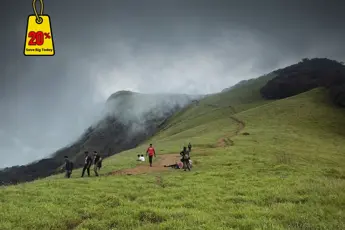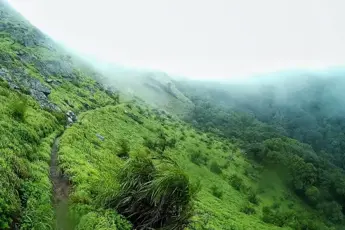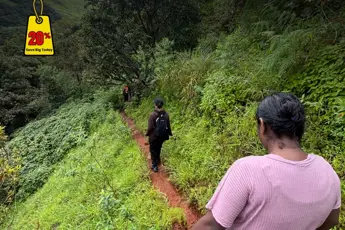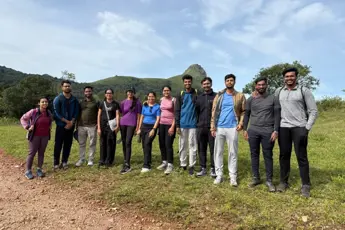
India, with its varied geography, affluent heritage and rich culture, has been the choice of tourists across the globe for centuries now. But tourist overload has resulted in some harsh environments as well as social problems. To avoid them, sustainable tourism has made a serious effort in India and invited tourists to take responsible action so that they may inflict less damage on nature and bring maximum benefit to the people. Sustainable tourism in India is described to be practices that leave sufficient space for the natural environment, enhance the conservation of culture, contribute to the local economy, and facilitate good travel etiquette. From the snow-white peaks of Himachal Pradesh to the tranquil backwaters of Kerala, India has millions of options for eco-discovery. Green tourism, like homestays and eco-resorts, is becoming important as travellers get a chance to experience life on the ground amidst local environments and also get a chance to contribute directly to local development. National wildlife sanctuaries and national parks are also more focused on conservation education and selective tourism in an attempt to contribute to the conservation of threatened species and sensitive ecosystems. There are still other tour operators that plan more and more planned itineraries, reducing carbon footprints by advocating the use of public transport, cycling tours, and trekking trails. Cultural tourism forms the backbone of sustainable travel.Visiting festivals, handicraft workshops, and local cuisine gives an understanding of Indian culture and small-scale industries, as well as artisans' livelihoods. Responsible travel also encompasses giving respect to local culture, water and energy conservation, the prohibition of single-use plastic, and waste management. Foreign tourists must utilise local guides and facilities so that they eventually leave behind local spending communities. Government efforts such as the Incredible India campaign, NGOS, and community-based tourism are positively promoting sustainable tourist behaviour. Efforts such as Swachh Bharat Abhiyan (Clean India Mission) have already made tourists and stakeholders in tourism eco-conscious and sensitive about cleanliness. As tourism is on the rise in India, responsible travel choices are more crucial than ever. By adopting sustainable tourism, tourists can see the diversity and splendour of India while conserving its natural and cultural heritage for posterity. It's not where we visit but how we get there that makes all the difference. Sustainable tourism welcomes all kinds of travellers to become a contributing member of a positive movement, enjoying India's breathtaking heritage while having rewarding, ethical, and responsible travel.What is Sustainable Tourism?Sustainable tourism is one of tourism’s which aims to reduce negative impacts on society, nature, and economy and increase benefits to locals and natural and cultural heritage preservation for future generations. Sustainable tourism welcomes tourists, tour operators, and governments to take responsibility and keep destinations intact and not consume them.There are three basic principles at the heart of sustainable tourism:Environmental Responsibility: Pollution reduction, natural resource conservation, wildlife conservation, and utilisation of green values such as recycling, water, and energy conservation.Socio-Cultural Respect: Local culture respect, heritage, and tradition through adherence to real experiences, local culture respect, and nothing that can undermine communities or destroy their identity.Economic Benefit: Tourism development in the sense that tourism provides the local population with long-term economic advantages in terms of employment, decent wages, and support for small and local businesses and services, respectively.Why Sustainable Tourism is Important to IndiaSustainable tourism is particularly critical in India as the nation boasts a huge population, rich culture, and great biodiversity, which affects and is affected by tourism. India is one of the leading tourist destinations globally and is experiencing severe mass tourism, cultural erosion, and environmental degradation at most of its key destinations. Sustainable tourism provides a means of balancing economic growth with social and environmental responsibility. India has ecologically fragile areas like the Himalayas, Western Ghats, Sundarbans, and the Thar Desert. Unplanned mass tourism will result in deforestation, pollution, harassment of wildlife, and over-exploitation of nature. Controlled flow of tourists, eco-friendly tourist infrastructure, and conservation education are some of the sustainable tourism measures that conserve such areas and utilise them as alive and dynamic ones for generations to come. India is traditionally a mosaic of traditions, festivals, arts, and languages. The inflow of tourists, if not controlled, can promote commercialisation or loss of authenticity. Sustainable tourism manages to have decent contact with the people, maintains the protection of the heritage site, and conditions the tourist to remain respectful towards local crafts and religion. This helps to preserve India's rich cultural diversity and empowers artisans, performers, and traditional knowledge keepers.Responsible Travel Options You Can MakeResponsible travel needn't involve extreme measures, it's simply being that much more aware of how your actions impact the places and people you're visiting. Whether trekking in the Himalayas or walking around a city, what you do regarding travelling can impact the environment, the locals, and cultural understanding. These are some simple, effective, responsible travel alternatives you can add to your plans:Select Eco-Friendly Accommodation: End your days in eco-lodges, homestays, or hotels that adopt sustainable practices such as the consumption of renewable energy, effective waste management, and local purchasing. It is selecting organisations that nurture nature and society's well-being.Shop Local: Eat in neighbourhood restaurants, purchase souvenirs directly from the artists, and use the services of a neighbourhood tour operator or guide. It retains your money in the neighbourhood economy and helps small-scale enterprises to develop.Reduced Plastic Use: Bring a water bottle, a cloth shopping bag, and a metal straw to reduce disposable plastic use. Many of the Indian hotspots are already plagued by issues of plastic pollution, so any little bit will help.Be Respectful of Local Culture and Tradition: Learn a few local phrases, dress appropriately when needed, and respect local culture. Get permission before photographing people or religious buildings, and don't do anything that could be deemed offensive.Be Wildlife Smart: Never feed or touch wildlife, and refrain from taking part in activities related to animals for entertainment, including elephant rides or photography with captive animals. Be responsible in your wildlife tours by promoting education and conservation.Travel Light and Cleverly: Carry only essentials, and make use of eco-friendly products such as biodegradable toiletries. The lighter the load, the smaller the carbon footprint, particularly on air travel and car travel.Choose Sustainable Transport: Walk, cycle, or use public transport wherever you can. When you do have to drive, carpool or use electric or fuel-efficient vehicles.Leave No Trace: Always clean up after yourself, stay on marked trails, and dispose of trash correctly. Leave natural and cultural sites in the same state you arrived in so others can enjoy the same experience.How Tour Operators Can HelpTour operators play a gigantic role in the way individuals move around and are therefore well placed to encourage sustainable tourist activities. By designing environmentally conscious, locally centred, and culturally sensitive tours, tour operators can spearhead responsible tourism. escape2explore is just one of the companies best placed to begin the movement by infusing sustainability into every dimension of the travel sector. This is how they can be the trendsetters for the trend:Providing Green Trekking and Adventure Holidays: Adventure and nature tourism, in its very nature, will be forced to put the tourists in touch with fragile environments. This can be prevented by the operators by undertaking low-group treks, employing green gear, adopting low-impact trails, and encouraging sustainable camping. Operators such as escape2explore can also choose off-the-beaten-track places that are not heavily visited, thereby reducing pressure on heavily visited tourist spots and dispersing tourism benefits further.Work with Local Communities: Involvement of local people in tourism allows tourism to benefit livelihoods, safeguard cultural heritage, and be rooted in genuine experience. Tours utilise local guides, locally operated accommodations, and have cultural interchange. A village sojourn or dinner prepared in traditional style is a product. Overall, companies reclaim control from governments for the communities of their place-based tourism, and their locals do benefit.Informing Visitors of Leave No Trace Philosophy: No other experience a tour operating company can have is sweeter than enlightening visitors. When planning and while on the trip, corporations have the mandate to enlighten members to Leave No Trace ethics, such as limiting wastage, wildlife sensitivity, and hands-off nature. Educational books, educative articles, or pre-vacation packages are avenues where tourists can be enlightened citizens so that they do not pollute the environment.Read: Guide to Trekking the indian himalayas| The Valley that Stole My Heart | Darjeeling Diaries |Rajmachi Fort|Pench Tiger Trail



